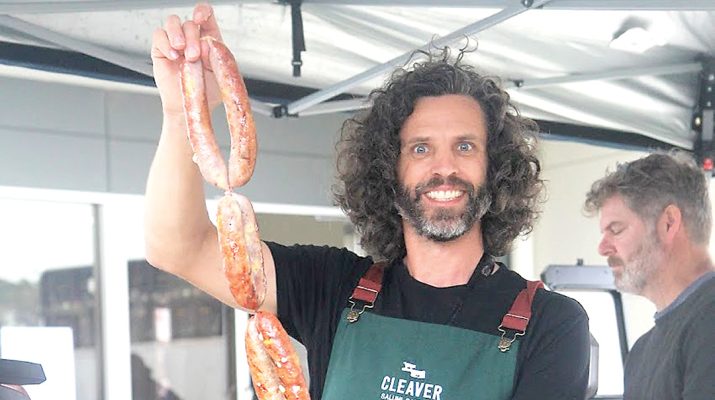Katrina BRANDON
HAVING developed an early passion for food, Dave Cann, owner of String & Salt in Warragul, helps open up opportunities for people to expand their culinary knowledge.
At the age of 14, Mr Cann began working in kitchens and always had an interest in cooking at home before his time in other kitchens.
“I was about to start when I was 10, had a family friend who loved cooking and taught me all that passion,” he told Gippsland Farmer.
“I’ve been involved in some level of food since then, whether in restaurants or cafes. I trained as a winemaker, so I have had my own bottle shop for a while and did that side of things.”
About 11 years ago, Mr Cann and his wife established their shop as a kitchenware store and cooking school. They have also stocked the world’s first domestic meat aging and curing cabinets for eight years.
“We sort of grew from that into doing all of our appliances and the cooking school led us into doing more salami and curing and meat-based products, which led us to launch String and Salt Cleaver Salumi Cabinets,” he said.
“We launched (the Clever Academy) last year as an exclusive butchery, saloony, curing space. We produce a variety of fresh sausages, salamis and whole meats, including wild-caught options. Luckily enough, I get to travel a bit and do those sorts of demos.”
Understanding where food comes from and how it is made has always been something Mr Cann has been passionate about throughout his life.
Starting out selling wines to customers, he said he would always share information with clients about the wine so they could appreciate and enjoy the product more. Now, Mr Cann shares that same concept throughout his business and workshops.
“If you understand more about the process, you understand more about that aspect, then you’ll take a bit more care,” he said.
“There’s a lot that is process, a lot of convenience type of eating these days, so we can encourage people to understand how to make things, that it’s not complicated, it’s not difficult, it’s not scary, then hopefully more people get involved in that sort of stuff.”
In the current digital era, a wealth of information about food is available online at one’s fingertips. According to Mr Cann, many businesses wouldn’t exist without social media platforms, but the open web also allows users to come across other things, such as fad diets.
“Our businesses wouldn’t exist without social media, and therefore the capacity to be able to engage with more people wouldn’t exist,” he said.
“We know we tend to look and engage with the things that we want to, maybe disregard the things we don’t. Certainly, it has given a platform for a lot of odd ideas too – the food industry is not immune to that. And certainly some of the dietary fads and that sort of stuff, I think, can be a bit harmful.
“Some of the body image issues, which relate to food, can be influenced by that as well. So it’s good and bad, but I think that’s always going to be part of the issues with anything on social media.”
When searching for food information, Mr Cann said consulting the source is one way to obtain the best information possible. He told Gippsland Farmer that the best way is to talk to farmers and visit farmers markets, where you can access information from those who are deeply involved in the process.
He also encourages people to ask as many questions as possible, as well as engage with food whenever it is available.
“Don’t be scared of it. Look for passionate people. There’s a lot of passion in the food industry. Engage with that,” he said.
“Engage with where you’re getting the food from. Go to farmers markets. Get to know your butcher, get to know your green grocer. Get to know the people who are making the food for you or growing the food for the season.”

